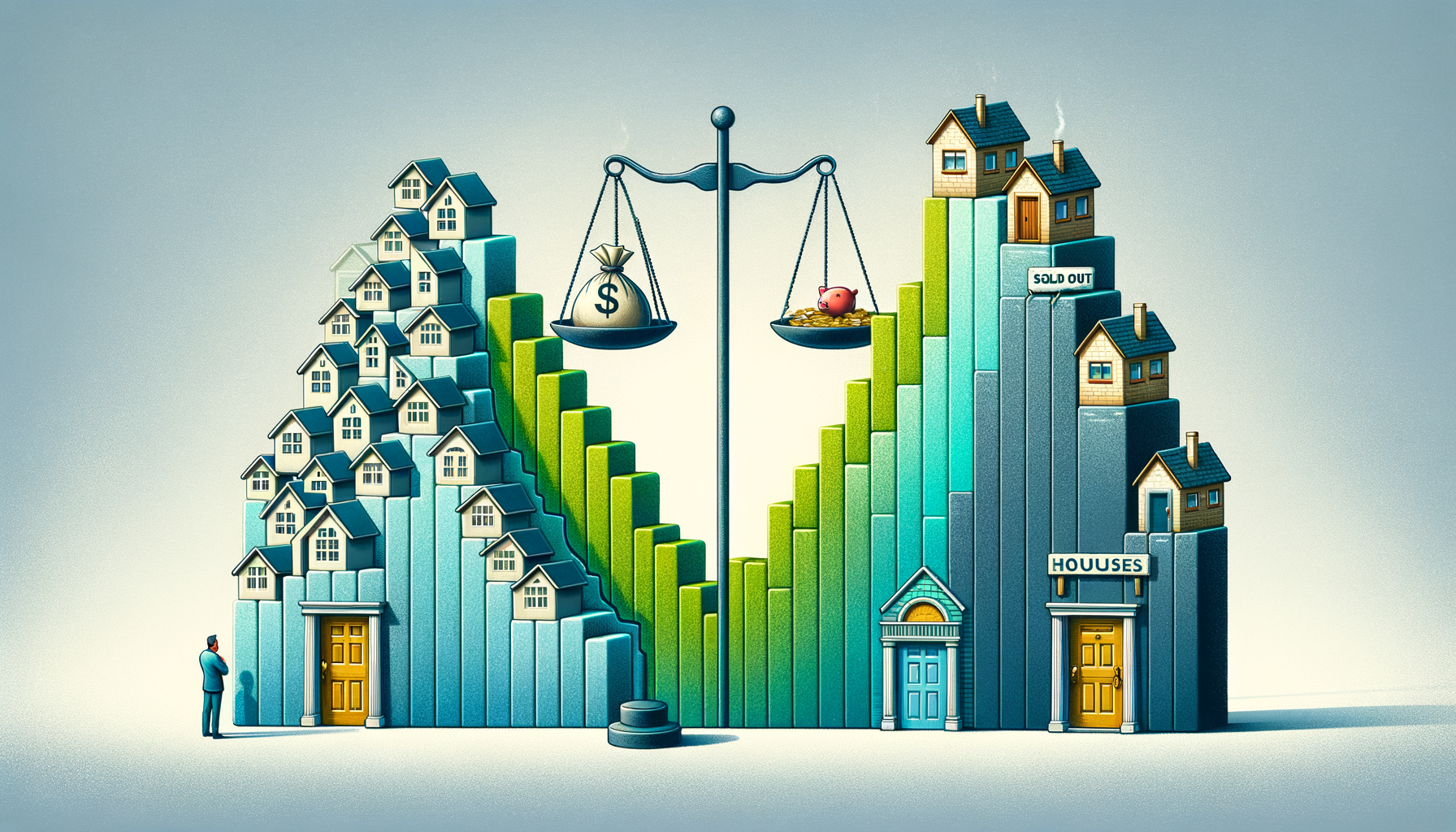
Determining the right time to invest in real estate can often feel like a tipping point on a scale of potential profit and risk. It’s a pivotal question: should you take the plunge now or hold off for a bit longer? This article delves into how you can make a well-informed decision, covering essential factors such as analyzing market conditions, considering your personal financial circumstances, and understanding the risks and rewards inherent in property ownership.
**Understanding the Real Estate Market**
The first step to finding the answer is understanding the real estate market’s cyclical nature. Market conditions tend to fluctuate, creating peaks and valleys that offer both high and low investment opportunities. These cyclical trends are influenced by economic factors like employment rates, interest rates, and consumer confidence.
In a burgeoning market, properties are frequently selling above the asking price as demand outpaces supply. Investors with an appetite for risk can make substantial returns during such phases. Contrarily, a distressed market often presents bargain prices, enticing cautious investors looking for less risky, long-term investments.
However, focusing exclusively on market trends would be an oversimplification. For a deeper understanding, one must consider the three main real estate market categories: the seller’s market, the buyer’s market, and the balanced market.
*A Seller’s Market* – This type of market manifests when demand for properties overshadows the available inventory, pushing prices upwards. Sellers hold the upper hand as multiple buyers compete for the same property, often resulting in bidding wars.
*A Buyer’s Market* – The opposite of a seller’s market, a buyer’s market comes into play when there are more properties available than buyers. Prices can stagnate or even decline, and buyers gain the upper hand in negotiations.
*A Balanced Market* – In this scenario, supply and demand are nearly equal, leading to stable property prices. It offers fair conditions for both buyers and sellers.
Understanding these market types and identifying the current state of your target area can help forecast potential investment outcomes.
**The Influence of Interest Rates**
Another critical factor in gauging whether it is the right time to invest is the current interest rate environment. Interest rates impact affordability, influencing both home prices and your potential mortgage payments.
Low interest rates tend to promote borrowing, leading to an increase in potential buyers and pushing property prices up. Conversely, high interest rates can reduce the pool of potential buyers, softening property prices. As an investor, understanding this dynamic and how it affects your financing costs is crucial.
**Assessing Personal Financial Condition**
Investing in real estate isn’t just about understanding the market. It requires a critical evaluation of your financial condition to determine if you’re ready to buy. Before taking the plunge, contemplate on these imperative factors:
– Capacity to Handle Property Costs: Besides the purchase price, owning a property comes with recurring expenses such as maintenance, insurance, taxes, and possibly homeowner association fees. Make sure you’re prepared to handle these costs before making the commitment.
– Mortgage Affordability: Can you afford the potential mortgage payment? Use a mortgage calculator to estimate your potential payments based on current interest rates.
– Down Payment: You generally need to have saved a substantial amount for a down payment. Traditional lenders typically require 20% of the property’s purchase price, while some loan programs might require as little as 3.5%.
– Credit Score: Your credit score directly impacts your ability to secure a mortgage and the rate you’ll receive. Ensure you have a sound credit score before applying for a loan to get the best terms.
– Emergency Fund: Having a buffer of savings to handle any sudden expenses or income losses can make the difference between comfortably owning a property and struggling to make ends meet. As a rule of thumb, aim for 3-6 months of living expenses.
**Weighing Risks & Rewards**
Property ownership brings both risks and rewards. Appreciation, cash flow from renters, and tax benefits are attractive aspects of buying a property. However, there are notable risks – property depreciation, vacancy periods, unexpected maintenance costs, and market downturns.
**Doing the Math: Buy vs. Rent**
To decide if investing in real estate is right for you, it could be beneficial to compare buying versus renting a property. A buy vs. rent calculator allows you to make an informed decision based on various assumptions such as property prices, rent costs, interest rates, and property appreciation rates. Keep in mind that investing involves more than just comparing costs on a calculator. It would be best if you also considered lifestyle factors, investment goals, and risk tolerance.
**Takeaway**
Deciding whether now is the time to buy requires mindful analysis of the current market, interest rates, your personal finances, and weighing the possible risks and rewards. Use available tools and resources, and seek professional advice to make an informed decision that aligns with your financial goals and risk tolerance.
Remember, real estate investing should not be a quick in-and-out transaction for fast money. Instead, property investment should be seen as a long-term strategy to build equity, create a steady source of income, and potentially generate a significant return in the future. There’s never a “perfect” time to buy, but with due diligence, you can determine the “right” time for you.

